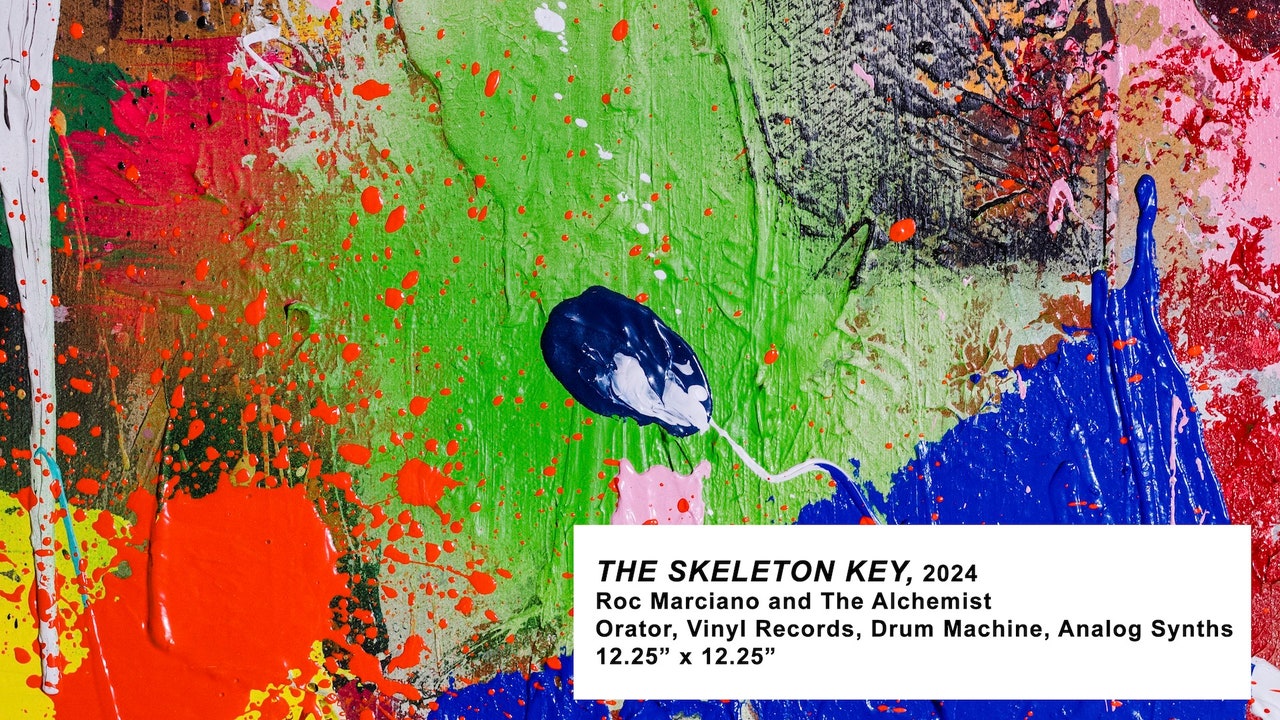The Elephant Man’s Bones was a true event album—a long-rumored, highly anticipated meeting of two hip-hop legends. It delivered on the hype in surprising fashion: a minimalist opus that shivered and smoldered more than it slapped. Though it bore the stylistic markings of its creators, Roc Marciano and the Alchemist, the album felt distinct in their respective catalogs. Instead of mangled soul loops and hard-edged boom-bap, this was mafioso rap tuned by Tibetan singing bowls; Al provided a pineal gland-stimulating airiness through which Marci floated like the ghost of a kingpin. Two years later, after attending to their solo careers, Al and Marci return with The Skeleton Key, a weirder, bleaker, more hermetically sealed take on prestige street rap. There’s no bloat, no guests, and no superfluous sounds. Each of its 10 songs feels like peering around a dark corner, an inescapable menace saturating every moment.
After finding a collective voice with The Elephant Man’s Bones, the pair settled into a comfortable rhythm, capitalizing on a long-simmering artistic connection. “We always making music,” Marci explained to Rolling Stone. “I’m always sitting on a batch of beats from Al.” Their near-constant workflow makes The Skeleton Key the product of a shared musical syntax that only comes from a deep and constant creative practice. On this leaner, meaner second record, Al’s beats are spacious yet brittle, peeling the layers from samples until only a groove remains. Marci writes with laser-cut precision, his exploded-view rhyme schemes locking together like the gears of an expensive wristwatch. When a song has a chorus, it usually bookends one long, sinister soliloquy. Everything adds up to a nearly unbreakable tension.
If The Elephant Man’s Bones was the soundtrack to a one-last-job jewelry heist, The Skeleton Key is the white-knuckle, bullet-sweating aftermath. Alchemist excels at pinpointing the most unnerving parts of a song—a minor-key piano modulation here, a restless drum fill there—and looping them to intensify their unease: Consider the chilling, dissonant, four-chord vamp that carries “Chopstick” or the blaring horn that slices through gentle Rhodes noodling on “Street Magic.” “Chateau Josué” has an anagogic quality, as if its greasy synth line and persistent kick were part of a ritual to wake the dead. Most striking is “Cryotherapy,” a wind tunnel of moaning vocals and what sounds like a harp glissando compressed into a ghostly shriek. Drums, if present at all, often feel several rooms away. Voices are recognizably human but bent into uncanny shapes. It’s some of Al’s most spartan work, but still as colorful, psychedelic, and hair-raising as a giallo death scene.
